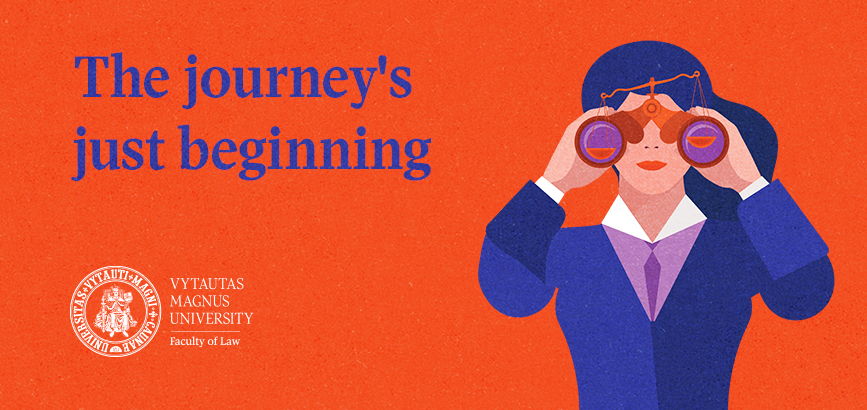International Law Summer School 2022
International Law Summer School 2022
The courses will take place on 2 May – 10 June, 2022 at Vytautas Magnus University Faculty of Law.
PICK THE COURSE(S) – 4 ECTS EACH:
2 – 11 May MERGERS AND ACQUISITIONS (prof. Arkadiusz Radwan, Vytautas Magnus University)
Mergers and Acquisitions (M&A) are pivotal moments in the life of companies. They involve a number of challenges for senior executives, shareholders, employees, and other stakeholders. They also raise a number of legal questions and require compliance with rules and regulations governing the deal preparation & structure, the acquisition process and the protection of various corporate constituencies. The course covers the key legal aspects of the M&A activity, including negotiated share deals, statutory mergers, merger alternatives, leveraged transactions (including MBO), hostile takeovers of listed companies, cross-border corporate reorganisations as well as some aspects of post-acquisition integration and follow-up disputes. The primary focus is on legal issues with other questions (financial, strategic, tactical) being integrated into the main thread. The course deals with M&A of European companies with some comparative (US) and some sectoral (financial, technology) add-ons.
2 – 11 May SPACE LAW (prof. Stefan Kirchner, University of Lapland)
Space operations and services are no longer the exclusive domain of states. The term “New Space” describes a rapidly growing space industry which brings together large and small companies as well as state and non-state actors and international organizations and consortia. Everyday life in developed countries is often impossible to imagine without the nearly constant use of space-related products and services. Space operations mark a field which is, like few others (for example scientific work in Antarctica), characterized by international cooperation and, increasingly, by cooperation between public and private actors. Contemporary and emergent forms of space operations and related services make space an attractive area of work also for private and government actors from small nations. This can range from the provision of services to the space industry over the use of nanosats by universities to privately operated crewed spacecraft which are due to set course for Moon and Mars in the near future but also to concepts such as asteroid mining. At the current moment in history, science fiction and actual business are becoming almost indistinguishable. It is the purpose of these lectures to introduce the students to the very real legal issues concerning existing and near-future space operations and services.
This course aims to capture the imagination of legal students and to contribute to the economic development of Lithuania, the Baltic region and Europe by giving students the know how needed to provide legal services for the growing space industry also in Lithuania and to get ready for the future needs of corporate clients and public institutions. Starting out as a traditional space law course, the lectures, which will be held in English, then turns into a practice-oriented seminar-style series of events which will tackle particular problems of space operations and services from the perspective of international law.
Students are expected to participate actively and to have a basic, but solid, understanding of Public International Law and an interest in law and technology.
The course will be taught by Stefan Kirchner, Associate Professor at Arctic Centre of the University of Lapland, who obtained his doctoral degree in Social Sciences (Law) from Vytautas Magnus University in 2012 and who currently serves, i.a., as vice-chair of the Space Law Interest Group of the American Society of International Law (ASIL) as well as in ASIL’s Steering Committee for the Areas Beyond National Jurisdiction Signature Topic and that Committee’s Space Subcommittee (please note that, as usual, all opinions expressed here or in the course are not attributable to any organization the lecturer is associated with).
16 – 25 May INTERNATIONAL BUSINESS TRANSACTIONS (prof. Daniel Barnhizer, Michigan State University College of Law)
This course surveys the complex subject of international business transactions. This includes international sales of goods, financing international transactions, payment systems, establishing and operating foreign investments, operating under the General Agreement on Tariffs and Trade and World Trade Organization, intellectual property and technology transfer, criminal law, dispute resolution, and other issues. All of these topics relate to one basic problem — how to engage in a business transaction with a foreign entity or person. In domestic trade, both parties are subject to the same sovereign government that controls the law and the sanctions that apply to the parties. The parties likely share a common language, similar business norms, and may even operate in the same financial circles. International business transactions involve issues of different governments, different locations, different laws, different languages (in many cases), different business norms, and other issues that potentially increase the complexity of the transactions by orders of magnitude. This course will give enough experience to be aware of some of these risks to be able to effectively advise clients or prepare a respond to those risks
16 – 25 May INTELLECTUAL PROPERTY LAW (prof. Jay Erstling, Mitchell Hamline School of Law)
The purpose of intellectual property law is to protect the rights of those who create original works. It encompasses everything from original plays and novels to inventions and product or service identifiers. The goal of intellectual property law is to encourage new technologies, artistic expressions, and inventions while promoting economic growth.
The objective of this course is to provide a general background in the major areas of intellectual property, including patents, copyrights, trademarks, geographical indications, and unfair competition. The concepts covered will include the nature of the different intellectual property rights, the scope of protection, exceptions to and limitations on the rights granted, enforcement, and the relationship between intellectual property and development. In addition, the course will examine some of the issues of current concern in intellectual property protection and the most significant treaties and agreements that attempt to regulate intellectual property on a global scale.
31 May – 9 June ENERGY LAW (prof. Christopher S. Kulander, South Texas College of Law Houston)
This course introduces students to some of the basic legal and economic principles needed to counsel entities that develop energy worldwide. By the end of the class, students will have been introduced to a survey of the past, present, and future of energy use worldwide, followed by a survey of oil and natural gas exploration, use, and regulatory law in North America, Europe, and beyond. Students will also be exposed to a discussion of the development of coal, nuclear, and renewable energy sources. A survey of laws and concepts related to international energy agreements, sanctions law, anti-bribery and anti-corruption, sovereign immunity, and the international law of the sea will follow. In addition, 1-2 in-class drafting and negotiation exercises may be conducted as time permits.
31 May – 9 June DIGITAL CONSTITUTIONALISM AND DUE PROCESS OF LAW (prof. Joao Paulo Lordelo, Brazilian Institute of Education, Development and Research (IDP))
This course examines the challenges derived from the so-called “fourth industrial revolution” from the perspective of due process of law, a constitutional clause so relevant that it is commonly confused with the rule of law itself. To this end, possible solutions arising from digital constitutionalism are exposed. Foreign law contributions will be brought, not only from the Court of Justice of the European Union, the European Court of Human Rights and the Supreme Court of the United States, but also from the constitutional courts of countries like South Africa, Germany and Brazil.
Fee: 1 ECTS = 50 EUR.
Application: The deadline for submitting the application is 30 April, 2022.
Contact person:
Assoc. prof. Aušrinė Pasvenskienė
Jonavos st. 66, LT-44191 Kaunas
+370 37 327925
ausrine.pasvenskiene@vdu.lt













